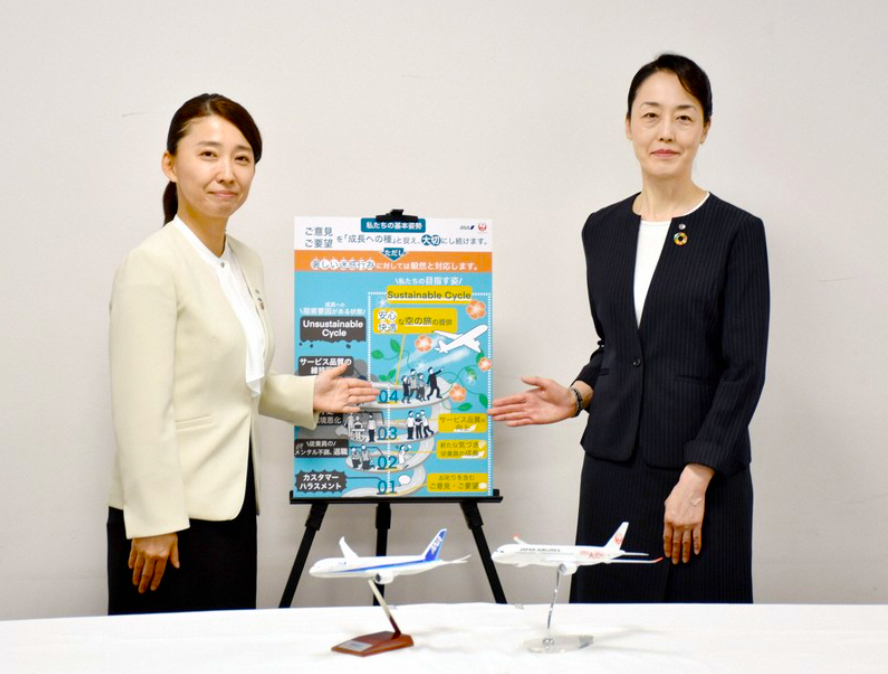


ANA Holdings Inc and Japan Airlines Co say they will respond to customer harassment under their jointly drawn-up guidelines as part of efforts to prevent their staff from quitting due to abusive customers.
The policy that's details the guidelines, further defines customer harassment as:
"behavior that harms the working environment of employees, such as requests for things that are not required or that go beyond the scope of what is considered reasonable in society" from customers who take advantage of their superior position.
The two airlines, which account for over 70% of the domestic airline market share, will work together to make the countermeasures more effective, protect employees from kasu-hara.
The two biggest Japanese airline operators said the guidelines address customer behaviors such as badgering staff, irrational demands and physical violence, among other typical issues.
The guidelines also cover responses to unauthorized access to workspaces and property damage, according to the airlines.
The move comes as so-called kasu-hara, Japanese slang for customer harassment, has become a social issue in recent years in Japan, a country known for its hospitality culture.
According to both companies, approximately 300 cases of customer harassment were reported at both ANA and JAL in fiscal 2023.
Until now, there were no clear standards, which led to confusion in judgment on the ground, and there were cases where employees suffered mental health problems and were forced to take leave or resign.
ANA's Yoshiko Miyashita, head of the Customer Service Promotion Department, points out,
"When we talk to staff in the customer service department, they feel that the number of cases is increasing. In reality, they are not being properly reported, and I think there are many cases where people are just putting up with it."
Regarding this policy, JAL's CX Promotion Department Director Rika Uetsuji said,
"(Customer harassment) makes other customers feel uncomfortable. We think it is important for both (customers and employees)."
- Abusive language, loud voices, insults, discriminatory remarks, slander
Comments mocking someone's appearance or insulting comments denying their abilities
- Threatening behavior
"Spread it on social media" or allude to antisocial forces
- Excessive demands
"Come to my house to apologize," "Get on your knees," or other unreasonable demands for compensation
- Assault
Throwing things, splashing drinks, waving umbrellas around
- Acts that disrupt business operations
Habitual repetition of the same complaints
- Entry into business space
Breaking into or staying at an office or office
- Misleading employees (statements and actions that are clearly different from the facts)
Using fraudulent boarding passes or making false declarations regarding damaged baggage
- Actions that undermine the credibility of the company or its employees (such as posting on social media)
Disseminating information that is not true or contains falsehoods that exaggerate the facts
- Sexual harassment (voyeurism, obscene acts/remarks, stalking, etc.)
Sexual remarks or behavior, or stalking that causes physical or mental pain
The two carriers follow convenience stores and railway companies in taking measures to protect their employees from such abuse. ANA and JAL said they will call on other airlines to take similar steps.
The reason why the two major airlines are standardizing their customer harassment countermeasures is because of a serious labor shortage.
